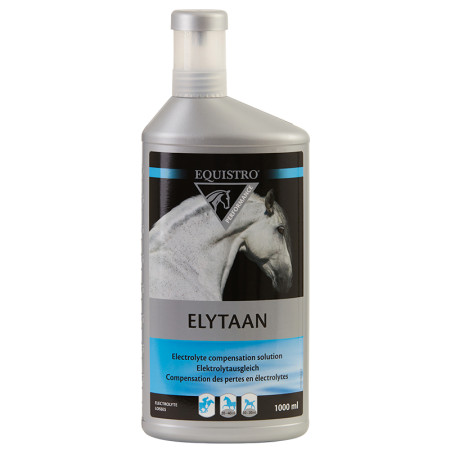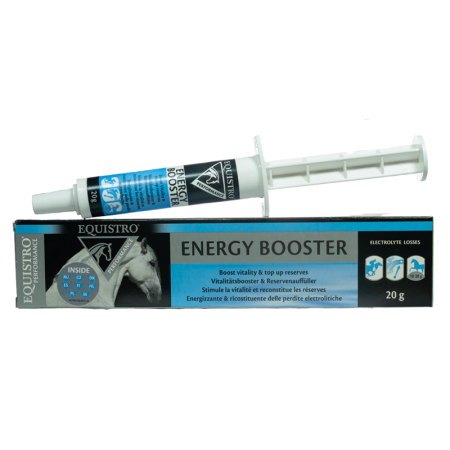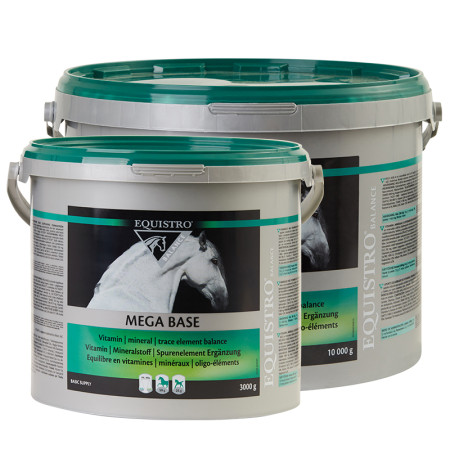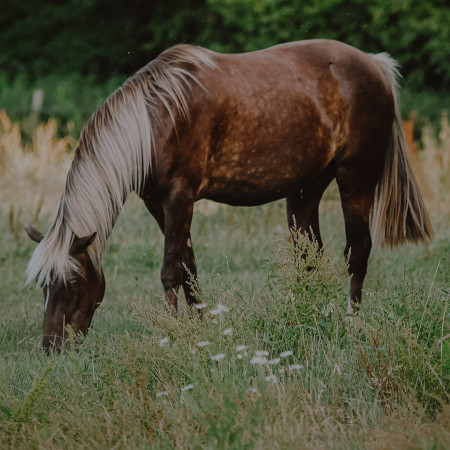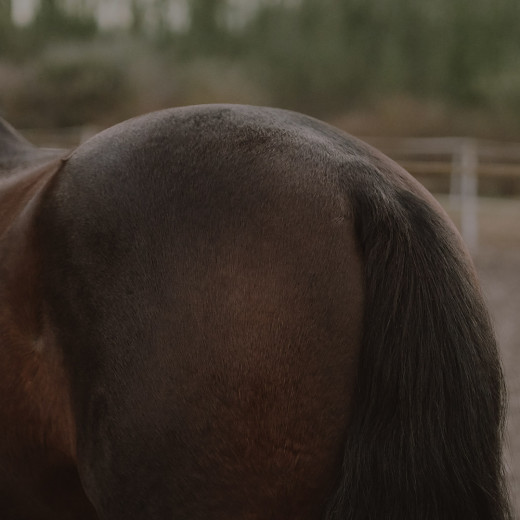
Diarrhea
Diarrhea, what we're talking about?
Diarrhoea is defined as the increase of frequency and decrease in consistency of feces and is - among feces water. Typically, diarrhea is a sign of infection or dysbiosis in the hindgut. Because of the physiology of the horse’s gut, fluid loss due to diarrhea can rapidly lead to servere dehydration which can cause other health problems. Recognizing the signs, understanding potential causes, and implementing proper management are crucial aspects of maintaining the horse's health.
CAUTION:
Diarrhea should not be mistaken from feces water! In contrast to diarrhea, both the consistency of the feces as well as the frequency of defecation are unchanged in the case of feces water. The defecation is accompanied only by the excretion of dark-colored water. This is not diarrhea, but in some cases existing feces water can lead to diarrhea, the cause of which must be determined.
Overall, two main types of diarrhoea are differentiated:
- acute (over the course of a few days)
- chronic (more than 3 weeks).
Causes of diarrhea in horses
One always should keep in mind that diarrhea in horses always is a symptom and not a disease itself. There are several reasons why horses can suffer from diarrhea. In cases of acute diarhea (no longer than 3 days maximum), most common causative agents can be
- sudden changes in diet
- recent deworming (or other drugs with diarrhea causing side effect)
- stress
- travel
- show / event / race attendance
- moving to another stable
Depending on the length of time that the diarrhea continues, as well as the causative agent of diarrhea, the severity ranges from mild to severe. Severe cases, if not treated imediately, can lead to enormous loss of water and electrolytes which results in a massive dehydration with reduced blood volume and electrolyte imbalance.
Possbile reasons for chronic diarrhea:
- Parasites (e.g., larval cyathostomiasis)
- Bacteria infection (e.g., Salmonella spp., Clostridium spp.)
- Virus (e.g., Rota, Corona)
- Chronic liver diseases
- Tumors of the gastro-intestinal tract (e.g., Lymphoma)
- Gastric ulcers
- Toxic plants (e.g., Acorns)
- Sand ingestion
Diagnosis
Determining the exact diagnosis is often challenging. If the diarrhea is not a reason of an obvious influence which is going to pass, the horse should be monitored closely for 24 hours according to the loss of water and the dehydration level. Furthermore, one should pay attention to further indicators like reduced appetite, weight loss, signs of pain or fever, apathy or reduced skin tugor and call a vet immediately if these symptoms do not disappear after 24 - 48 hours.
Veterinary diagnostic should include th follwoing parameters:
- Anamnesis
- Physical examination (including dehydration status of the horse)
- Fecal investigation (microbiology)
- Abdominal ultrasound
- Blood sample
Treatment options
The overall treatment does only partly depend on precisely identifying the causative agent. In most of the cases, the most important goal is to rehydrate the horse and supplement the loss of electrolytes. Based on the detailed diagnosis in special cases, like infectious agents (bacteria, parasites, virus), a specific treatment in addition is necessary. In general, a diarrhea treatment include intra venous fluid therpay, oral intestinal protectants, electrolytes. In specific cases, the use of antibiotics, anti-parasitic medications, painkillers and fecal transfaunation can become necessary as well.
How to prevent diarrhea in horses?
- Minimize stressors and ensure a stable environment for the horse
- Provide access to clean, fresh water and consider electrolyte supplements to prevent dehydration
- Gradually introduce dietary changes and ensure a balanced, easily digestible diet
- Implement a regular deworming program to control internal parasites
- Regularly vet check-ups
- Prebiotics can help to strengthen the natural defense of the gut bacteria
One has to keep in mind that foals are at higher risk as severe diarrhoea can quickly cause dehydration. Whenever foals are suffering from diarrhea, a vet always should be consulted as soon as possible.
Dr. med. vet. Caroline Fritz

